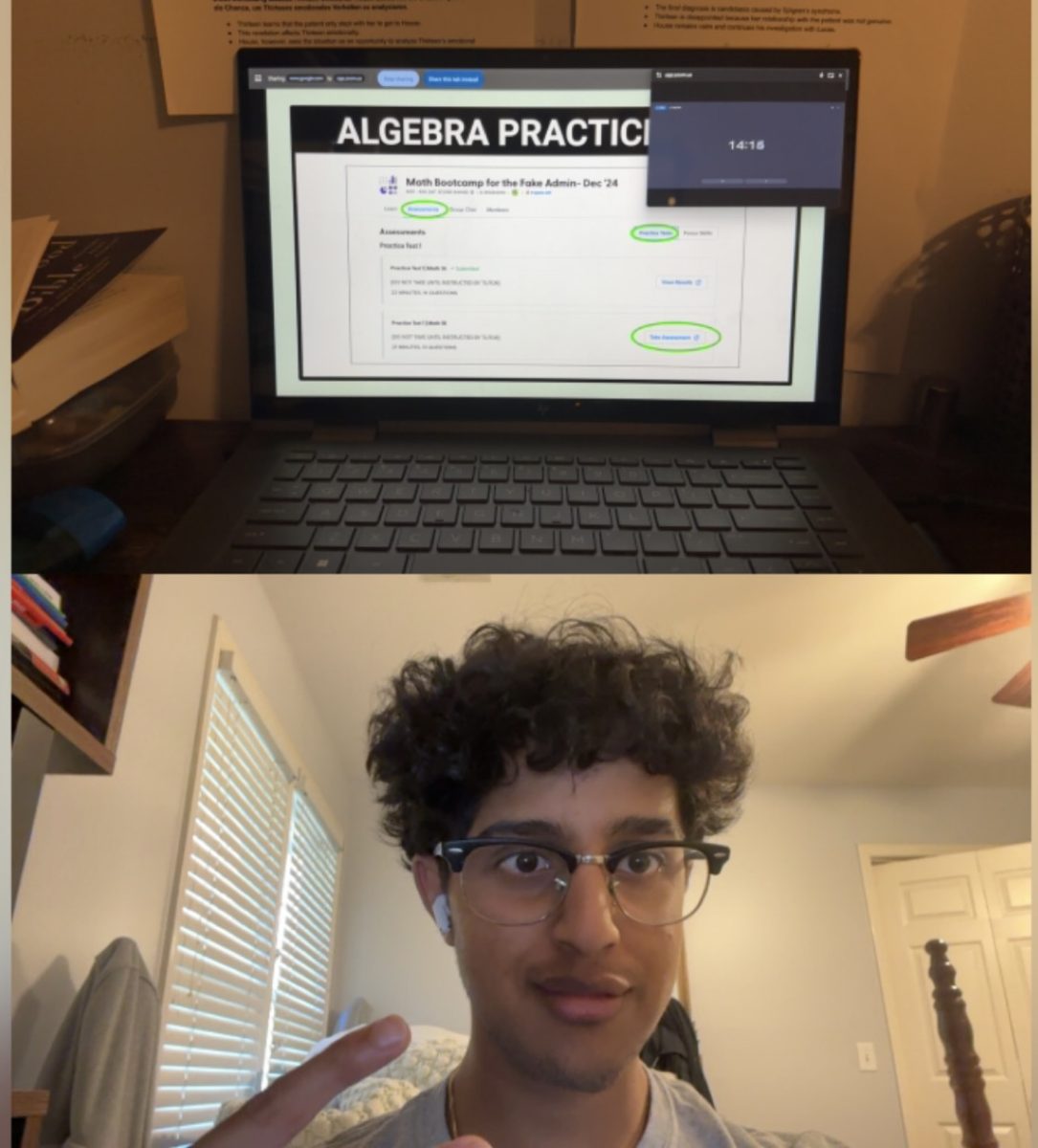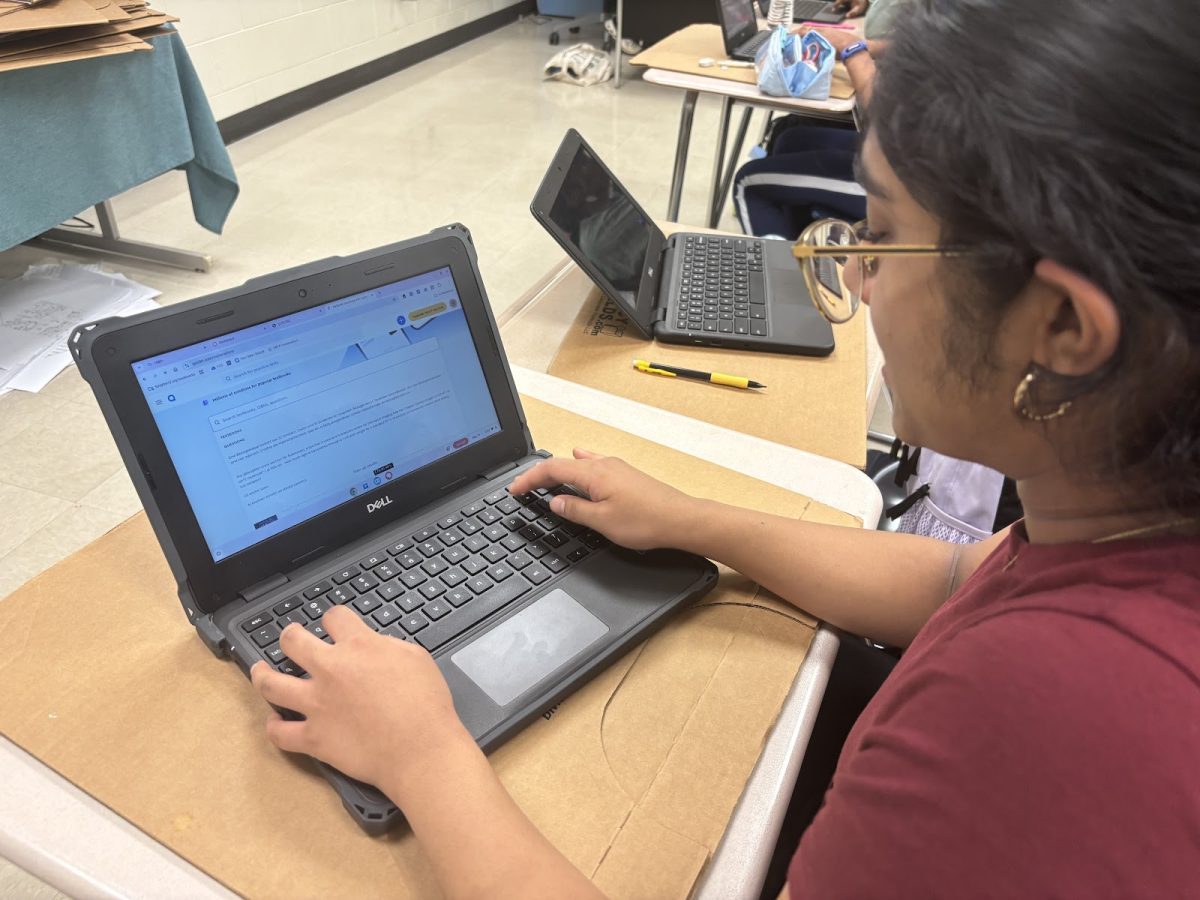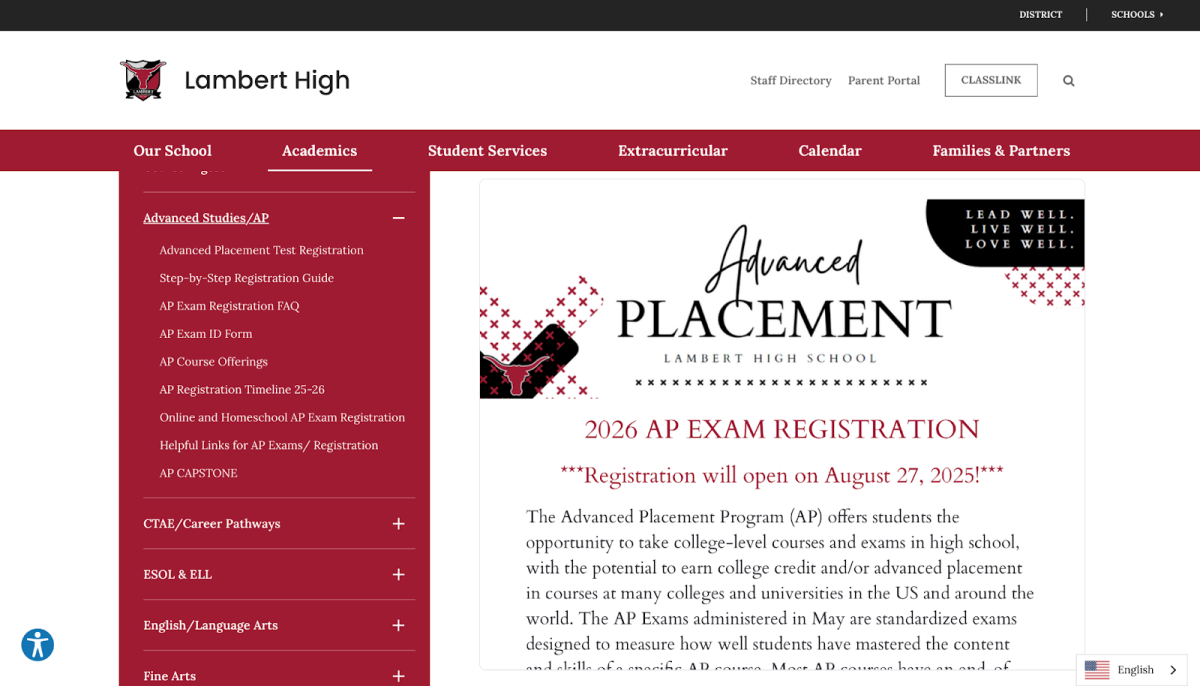On Friday, October 17, Lambert underclassmen will have the opportunity to take the Preliminary SAT/National Merit Scholarship Qualifying Test (PSAT/NMSQT). The test is designed to emulate the structure of standardized tests such as the SAT and serve as a qualifier for the prestigious National Merit Scholarship Program. While the exam itself is often marketed as low-stakes, its implications for college admissions and scholarships make it a high-pressure milestone for several students. Standardized test scores such as the PSAT, SAT and ACT have long been a cornerstone of the college admissions process, in fact, several of the T20 schools are now enforcing test score mandates for undergraduate admissions. However, their validity is increasingly under scrutiny due to factors pointing to a gap in study resources and funding across the country.
The PSAT/NMSQT, in particular, identifies top-performing juniors for National Merit recognition, with only one percent of test takers named as semifinalists. Qualifying students are considered for prestigious scholarship opportunities and receive national recognition from renowned institutions. These students are chosen based on a selection index, which varies by state and is calculated using a formula that doubles the Reading and Writing score and adds the Math score. In recent years, cutoffs for selection have reached record highs, with states like Massachusetts and New Jersey requiring a Selection Index of 225, a near-perfect score, according to PrepScholar. However, this upward trend is not representative of where most other states fall with regard to test scores. For example, Georgia falls not too far behind with a cutoff selection score of 220, but there is a significant decline when assessing states such as North Dakota and New Mexico.
Many critics argue that exams like the SAT reinforce racial and socioeconomic disparities, especially when access to prep resources is uneven. Research from Brookings demonstrates a strong correlation between family income and test scores, largely due to the ability to afford expensive tutoring and test prep resources.
Despite these limitations, students have made great use of the affordable and accessible resources available to them, ranging from the Collegeboard Bluebook practice exams to helpful Youtube videos. In fact, several platforms such as Khan Academy and Schoolhouse aim to address this exact issue by providing free study resources and instruction to students of all socioeconomic backgrounds. Lambert senior Vidyuth Shankar works as an SAT tutor to address these disparities.
“My preparation included targeted practice tests, review books and some online resources; most were easily accessible through libraries or free online tools,” Shankar stated. “Khan Academy’s a great tool for practice questions.”
Still, many comprehensive study tools tend to be pricey and not all students have access to such resources. This gap in study tools unfortunately does significantly reflect in students’ performances.
“Students with access to private tutors or paid courses often have an advantage,” Shankar said. “Expanding free prep programs in schools or online could help level the playing field.”
With the PSAT approaching, many students are looking for guidance and advice on how they can maximize their scores effectively. Like any other test, the PSAT requires consistent practice and strategic analysis of one’s weak areas.
“It’s best to start early, focus on consistent practice and take diagnostic tests to identify weak areas instead of cramming; even small, regular improvements add up significantly,” Shankar explained.
As prestigious schools like Harvard, MIT, Georgetown and Georgia Tech revert back to standardized testing requirement in 2025, the debate over the role of exams such as the PSAT and SAT continues. Though many schools view these exams as an objective benchmark to measure academic performance and competency, critics argue that they reflect privilege over potential.
For many Lambert students, the PSAT is more than a test—it’s a reflection of their academic capabilities and a stepping stone towards their futures. Whether students are aiming high for National Merit recognition or simply looking to gain insight on this exam, the conversation surrounding standardized testing is far from over.















